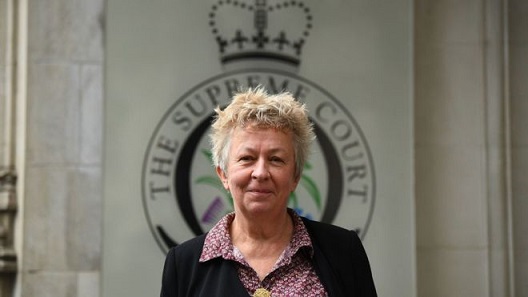
A judge, who says she was bullied and had a breakdown after speaking out about government cuts, has won a landmark appeal at the Supreme Court.
The court ruled Warrington District Judge Claire Gilham could be classified as a “worker” and was therefore entitled to whistleblowing protection.
This means she can now have her case heard at an employment tribunal.
Five Supreme Court justices ruled unanimously in her favour, in contrary to a Court of Appeal ruling from 2017.
Speaking after the ruling, Judge Gilham said: “Winning is a great relief after these seven long years.
“Ethically I always knew that my point was right: that judges should have human rights protections.
“You can’t have justice without independent and unafraid judges, and if judges can’t speak out to protect the court system, then justice suffers and the people caught up in the system suffer too.”
She had raised several matters with her senior court staff. They included a lack of secure court rooms, a severely increased workload and administrative failures following major cuts to the Ministry of Justice budget from 2010.
The judge, who sat at Warrington County Court in Cheshire, claimed that as a result of her complaints, she was seriously bullied, ignored and undermined.
She was informed that her workload and concerns were simply a “personal working style choice” and inadequate steps were taken to support her return to work, she said.
She also said her health severely deteriorated leading to mental health problems and she was signed off work due to stress from the end of January 2013 but has recently returned.
In 2015, she made a claim in an employment tribunal, which depended on her being a “worker” under the Employment Rights Act 1996.
But the tribunal determined that she was not a worker under the act for the purposes of whistleblowing protection.
In Wednesday’s judgment, President of the Supreme Court Lady Hale said: “I can reach no other conclusion than that the Employment Rights Act should be read and given effect so as to extend its whistleblowing protection to the holders of judicial office.”
The court ruled that bullying, victimisation and failure to take complaints seriously would be an interference with a judge’s right to freedom of speech under Article 10 of the Human Rights Act.
A Ministry of Justice spokesman said the government accepted the court’s judgment and was considering how to implement it.






Be the first to comment